5 Hormone Balancing Foods for Optimal Health
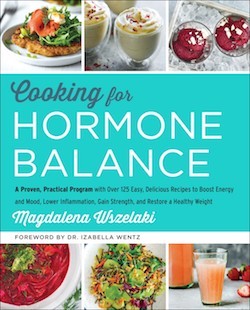
Fortunately, changing up the contents of your fridge is a simple task that can make a big difference in your hormonal health, says Magdalena Wszelaki, author of the forthcoming book Cooking for Hormone Balance. (She should know: As a certified holistic health coach, she's healed herself from multiple maladies, including two autoimmune disorders, adrenal fatigue, and estrogen dominance.)
The first step, she believes, is to clear your kitchen of inflammatory processed foods and high-sugar snacks, plus meat and dairy from conventionally raised animals that have been injected with antibiotics and growth hormones. "I see women getting best results when they adopt an anti-inflammatory diet that is free of gluten, dairy, corn, soy, and is low in sugar," she says.
From there, it's all about adding in foods that help support healthy reproductive hormone levels. There's not a one size fits all plan—everyone's hormonal makeup is different—but Wszelaki says these five ingredients are a good place to start, no matter what kind of hormone imbalance symptoms you're dealing with. (And, as always, you should always seek out your doctor's advice if diet alone doesn't start to soothe your symptoms.) Who knows—soon, your PMS woes may be as obsolete as putting Splenda in your Starbucks.

{{post.sponsorText}}
Scroll down for the 5 best foods to eat if you're dealing with a hormone imbalance.
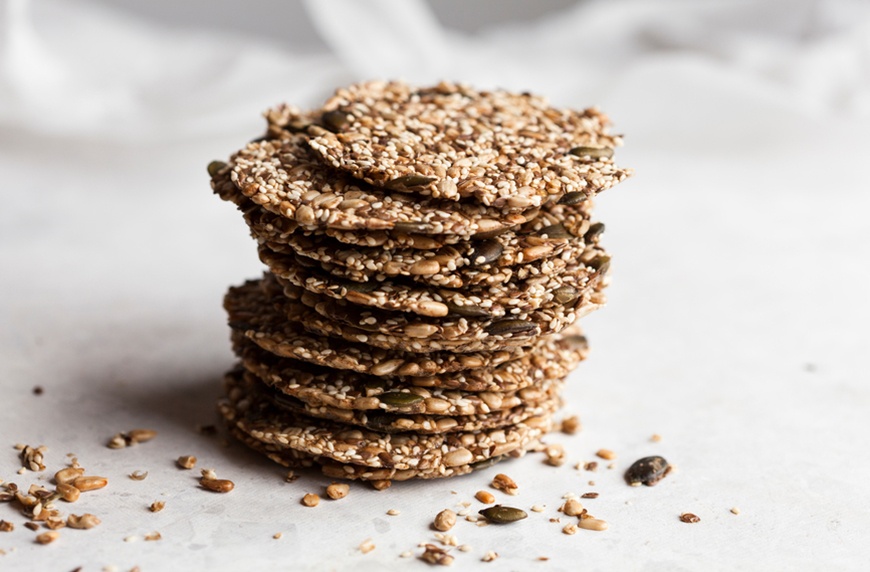
1. Flaxseed
Though it's best known for its omega-3 content, flaxseed contains lignans—a form of phytoestrogens, which are naturally occurring compounds that can bind to estrogen receptors in the human body and may help reduce excess estrogen that can cause health issues such as PMS, fibroids, breast lumps, fibrocystic breasts, and even estrogen-positive breast cancer.
Flaxseed can also help with elimination, which is a critical aspect of hormone balance. "Flax is high in soluble fiber, which is a great prebiotic, and insoluble fiber, which is key in getting the bowels moving and detoxing us from 'used up' hormones," explains Wszelaki. "I recommend adding two tablespoons daily of freshly ground golden flaxseed to any meal, but keeping the seeds unheated." The easiest way to get your fix: Throw 'em into a smoothie à la Jennifer Garner.
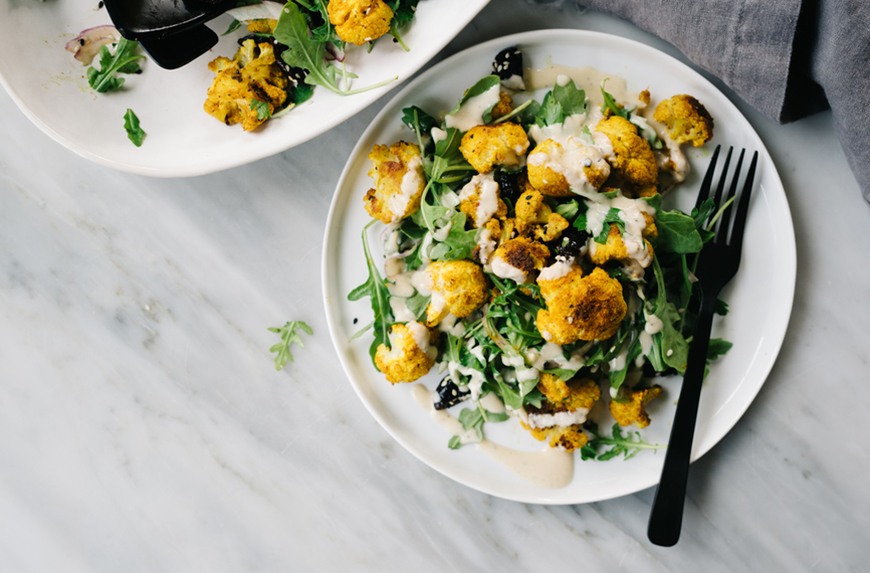
2. Cruciferous vegetables
Next time you're buying ingredients for a grain bowl, make sure to load up on veggies such as broccoli, cabbage, cauliflower, and kale. "They contain a compound called diindolylmethane (DIM), which supports healthy levels of estrogens," says Wszelaki. "DIM [may help] with conditions such as endometriosis, PMS, breast lumps, and breast cancer." She recommends eating three to five lightly cooked servings of cruciferous veggies per day.
You can also take a 200 mg/day DIM supplement, but Wszelaki cautions against using this as a quick fix. "Diet is the foundation and first step in rebalancing our hormones," she says. After all, if you're eating a highly inflammatory diet, no supplement will help on a sustained basis.
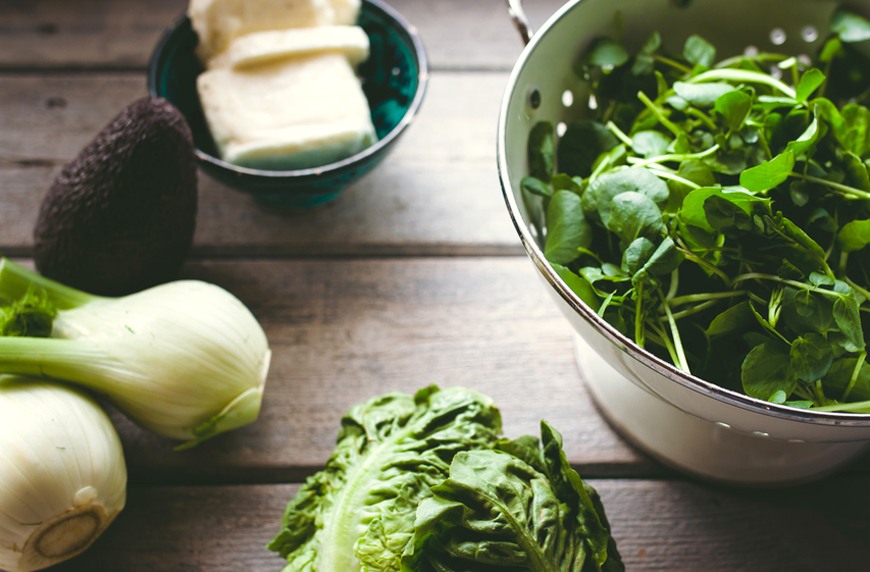
3. Bitter greens
Swap out the romaine in your salads for arugula, watercress, or dandelion greens—all of which provide nutrients necessary for hormone production while stimulating good digestion to flush excess hormones from the body. "I recommend regularly adding dandelion leaves to salads or stir fries," says Wszelaki. "A wonderful, coffee-like latte can also be made with dandelion and chicory root." (You can find her "Better Than Coffee Latte" recipe in Cooking for Hormone Balance—or buy some Dandy Blend for an instant fix.)
One caveat: Dandelion greens, in particular, are an acquired taste (to say the least.) Test the waters by adding them to a quinoa or farro salad before making them the main event in a dish.
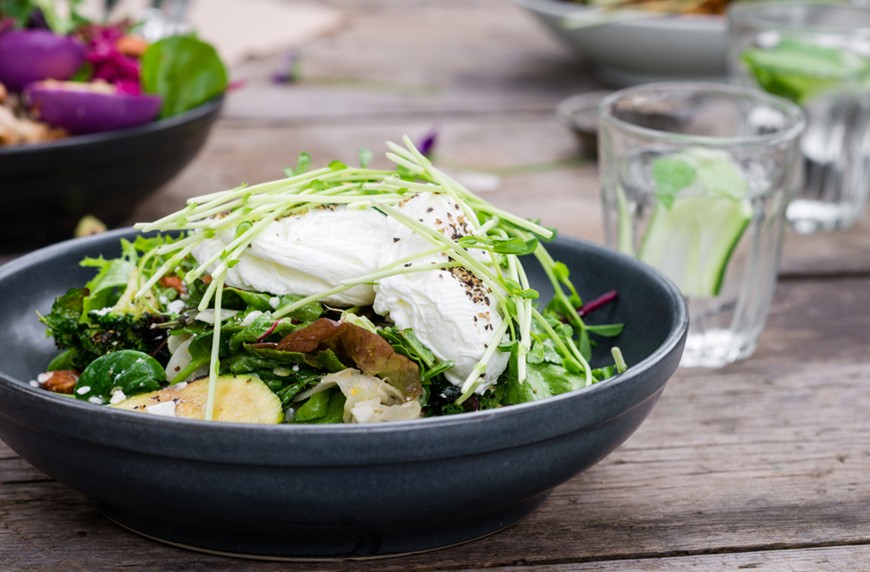
4. Broccoli sprouts
This baby veggie is a medicinal powerhouse thanks to its high sulphoraphane content—a powerful antioxidant with anticancer properties that also supports detoxification of the liver and, subsequently, excretion of excess hormones. "For preventive purposes, I recommend adding 1/4 cup per day to smoothies or salads—and the sprouts need to remain raw," says Wszelaki. "For women with estrogen-positive breast cancers, the dose should be one cup per day." They'd be exceptionally delish atop this southern-style Caesar salad, right?
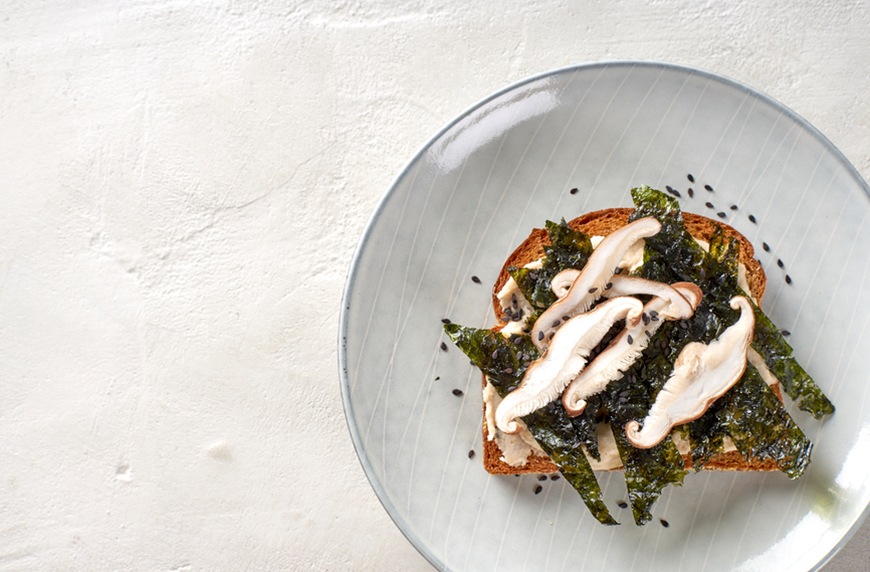
5. Sea vegetables
Seaweed, kelp, wakame, and dulse are rich in B vitamins, which are critical for hormone balance and support breast health. (The only people who shouldn't eat iodine-rich seaweeds, according to Wszelaki? Hashimoto's patients with elevated antibodies.) "My recommendation is to add kelp when simmering soups and stews. Rehydrated wakame and dulse can be tossed into salads and soups," says the health coach. "Just a couple of tablespoons per week will produce great results." Hey, any excuse for more sushi runs.
Here's exactly how Emmy Rossum balanced her hormones with food—and how six wellness experts handle their hormonal acne.
Loading More Posts...